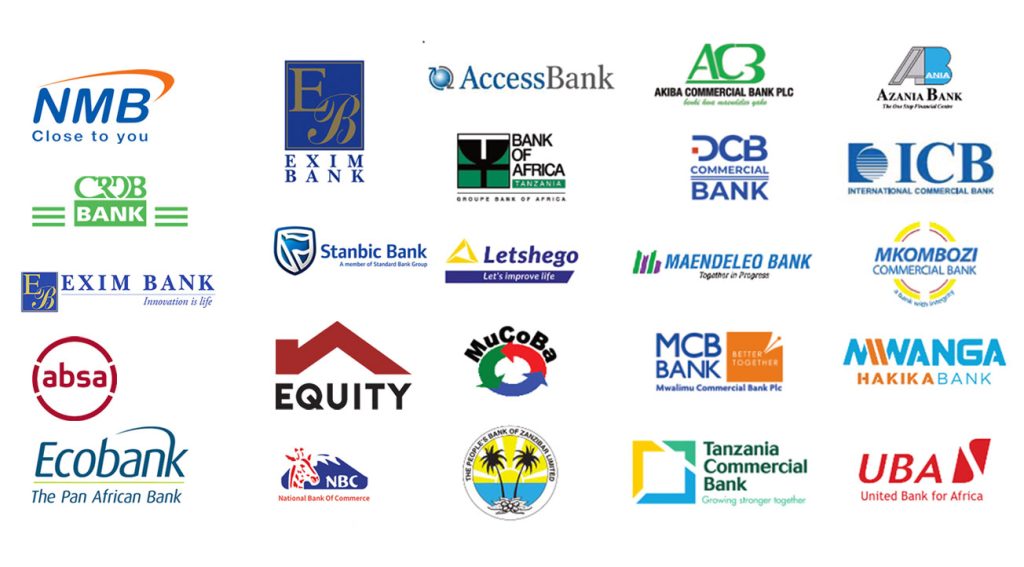The banking sector has grown fast in the last three years thanks to a strong economic environment and falling inflation in the country. The sector has grown by 16 per cent, overtaking the remaining sectors by far. The second growing sector was mining and quarrying, which grew by 10.2 per cent.
According to the 2022 financial sector Supervision Annual report of the Bank of Tanzania (BoT), The Tanzania banking growth sector recorded in 2022 and 2023 with profits before tax reaching TZS 1.4 Trillion, a 38% increase from TZS 1 Trillion in 2021.
Also, the country’s financial inclusion rate increased by 76 percent last year from 65 percent in 2017. Minister of Planning and Investment Prof. Kitila Mkumbo said the financial sector grew faster than any other sector. Other sectors are electricity (10%), arts and entertainment (10%), accommodation and food (8.9%), and information and communication (7.9%).
The bank’s stellar performance resulted from the government initiative to create a conducive business environment, especially after the COVID-19 pandemic that shocked the world between 2019 and 2021.
Also, read Tanzania’s Quest: Making Money Accessible for Everyone.
Tanzania embarked on a series of financial reforms in the 1990s to support the development of a market-based financial sector (BoT, 2011). That was the starting point toward the growth of the banking sector and its role in the domestic market economy. It continued to grow with advanced technology and kept providing banking services to the citizens, some business owners, and big investors from within the country.
How is the Government Committed to Improving Loan Access for Small Businesses (SMEs)?
Firstly, The Government and its other stakeholders had engaged in a partnership to provide loans with low interest by starting a special fund, for example, ‘Mfuko wa Utamaduni na Sanaa’, which provides loans to people who are working in this industry, including artists, musician, directors and producers, etc.
Also, the government, through the Bank of Tanzania, launched a new payments system that replaced the Interbank Settlement System (TISS), a project to build an interoperability payments system known as Tanzania Instants Payments Systems (TIPS) and its aims to facilitate faster, cheaper and more secure transaction between different digital financial services providers both banks and non-banks include mobile operators airtel money, M-Pesa, Halo Pesa, Ezy Pesa and T-Pesa.
BoT expects TIPS to benefit the Tanzanian economy and society by reducing transaction costs and risks and enhancing customer convenience and trust.
With services like ‘Benki Kiganjani Kwako’ from NMB and SimBanking from CRDB, access to bank services, such as loans and fixed deposits, can be enhanced, strengthening our banking sector.
Although the Tanzania banking sector records improvements compared to other sectors, it faces many challenges. One is that people are still illiterate about how to use some advanced technology, like ATMs, and some don’t believe in depositing their cash in the bank.
Another challenge is the technology barriers to interacting with each other despite the incoming of new systems, which enhances interoperability between organizations and customers.
Lastly, fraudulent activities are increasing, especially with the use of technology. TCRA and police forces have recorded cases, and customer fraud has increased.
Also, changes in regulations over time for banking operations and accounting regulations make it difficult to adapt and comply with, for example, radius compliance rules, which require banks’ agents to be within distance of each other. This rule reduces the chances of banking agents competing with mobile operator agents in terms of fighting for customers, as banking agents are required to have distance from one another. In contrast, this rule does not apply to mobile operator agents.
What Can Be Done to Improve the Banking Sector in Tanzania?
Firstly, we need to adopt and promote the use of credit cards and debit cards, especially when paying bills, including electricity bills, various fees, and taxes. This will encourage many people, especially (SMEs) to deposit their cash in the bank, increasing bank deposits.
Also, read Digital Banking Era: Evolving Landscape.
Promotion and advertisement through media campaigns to convince people to store their cash in the banks, that deposits will increase in the banks, and especially small entrepreneurs to have their payroll accounts to pay salaries for their workers.


Nice Article with clear facts for the Banks to excel in the market. Banks have key role to play on this but also BOT/Government as regulator needs to esnure existing policies supports Bank’s strartegies. Banking services/what bank can offer to the society should be taught in schools (should be part of schools’ Curriculum) from primary education foristance how Bank accounts operates/How to use ATM/How Bank’s digital platforms operates etc, This will build up a society which have positive perception on bank services, even if they will not manage to reach high levels of education but still they will need bank services to support them.